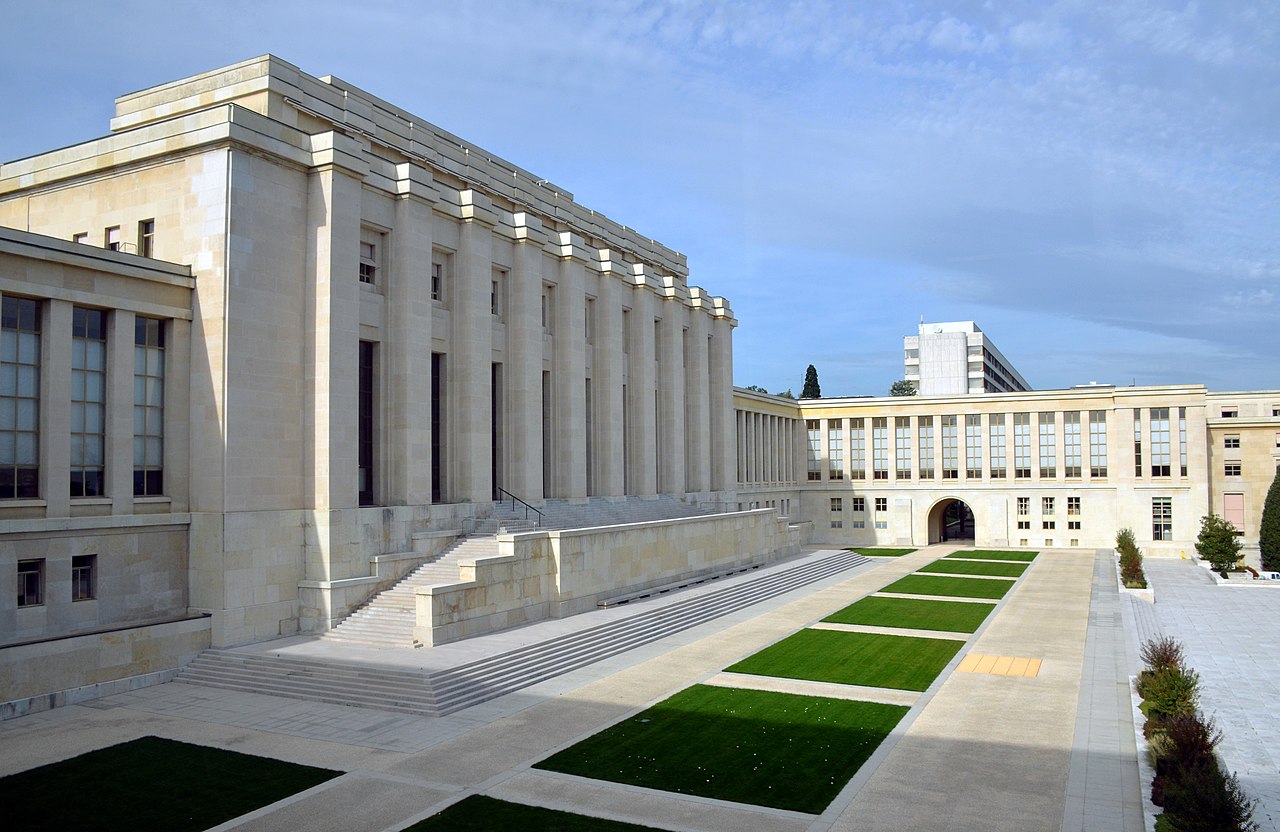Travel Notebook
We share reports from the scene and discuss current global security trends
Artificial Intelligence in Shaping the Future International Order: Outcomes of the International Colloquium in Hong Kong
Mr. Vadim Kozyulin,
Chief Research Fellow at the Center for Military-Political Studies of the Institute of Contemporary International Studies at the Diplomatic Academy of the Russian Foreign Ministry, Consultant of PIR Center
August 28, 2024
Vadim Kozyulin, Candidate of Political Sciences, Professor of the Academy of Military Sciences, Chief Research Fellow at the Center for Military-Political Studies of the Institute of Contemporary International Studies at the Diplomatic Academy of the Russian Foreign Ministry, Member of PIR Center Council, Consultant of PIR Center:
Summing up the results of the International Colloquium in Hong Kong (July 4, 2025), dedicated to the role of artificial intelligence (AI) in shaping the future international order, one can note Hong Kong’s aspiration to become a global hub of legal innovation. The event showcased the development of LawTech initiatives, the establishment of the International Organization for Mediation (IOMed), and the application of AI technologies for real-time translation. In the presentations of Chinese and Russian experts, there was a clear critique of Western dominance in technological regulation and a call for inclusive global AI governance free of discrimination. Discussions addressed the fragmentation of legal regimes, the absence of a binding international treaty on AI, the need for a ‘Charter for the AI Era,’ and support for the Global South. The Colloquium highlighted digital inequality – only 20% of developing states currently have AI strategies – and the urgent need for capacity building. The overall conclusion: minimizing risks and developing AI in the interests of all nations requires interdisciplinary and multilateral cooperation; Hong Kong positions itself as a key venue for such dialogue, while IOMed emerges as an alternative to traditional dispute resolution mechanisms.
On July 4, 2025, the International Colloquium on the role of artificial intelligence in shaping the future international order was held in Hong Kong. The event, organized by the Asian Academy of International Law in partnership with the AAIL Foundation and the Chinese Society of International Law, gathered experts from 47 jurisdictions worldwide, with more than 250 participants in total. Representatives of the Asian-African Legal Consultative Organization (AALCO), including Secretary-General Dr. Kamalinne Pinitpuvadol and over 30 delegates, also took part.
The Colloquium was timed to coincide with the 80th anniversary of the United Nations, underscoring the importance of international cooperation in the digital era.
Since its inception in 2017, the annual Colloquium on International Law has sought to position Hong Kong as one of China’s leading discussion platforms through debate on pressing global issues.
Hong Kong actively promotes the LawTech initiative for providing digital legal services, including online dispute resolution with the use of AI technologies. In January 2025, the Hong Kong Department of Justice established an Advisory Group on the Development of LawTech, which focuses on advancing digital legal technologies for the legal and dispute resolution sectors. In June, the first LexGoTech roundtable was convened.
On May 30, 2025, the Convention on the Establishment of the International Organization for Mediation (IOMed) was signed in Hong Kong–marking the creation of the world’s first intergovernmental organization dedicated to resolving international disputes through mediation. This historic step underscores Hong Kong’s growing role as an international hub of legal innovation and mediation.
According to Hong Kong’s Chief Executive John Lee (The Hon LEE Ka-chiu John GBM SBS PDSM PMSM, Chief Executive, Hong Kong Special Administrative Region of the People’s Republic of China), “Hong Kong holds a strategically advantageous position for advancing international cooperation in the field of artificial intelligence.” Within the framework of the “one country, two systems” principle, Hong Kong serves as a “super-connector” between China and the wider world.
The Commissioner of China’s Foreign Ministry in Hong Kong, Cui Jianchun, (CUI Jianchun, Commissioner, Office of the Commissioner of the Ministry of Foreign Affairs of the People’s Republic of China in the Hong Kong Special Administrative Region) presented the Chinese vision for global AI governance. He stressed the significance of China’s “Community of Shared Future” initiative for global development and peace, highlighting the importance of the BRICS+ format in the AI era. According to Cui, AI governance must avoid domination by individual states and be conducted in a non-discriminatory environment, ensuring that all countries benefit from capacity building in the AI sector. He further argued that algorithmic governance requires the creation of an early-warning system to address ethical dilemmas and safeguard human values.
Miguel de Serpa Soares, former UN Under-Secretary-General for Legal Affairs, (Miguel de Serpa Soares, Former Under-Secretary-General for Legal Affairs & United Nations Legal Counsel) noted that AI is already becoming an infrastructure shaping both information dissemination and warfare. He emphasized the urgent need for a “Charter for the AI Era” governing algorithmic systems, with legitimacy as the key factor. While the UN could serve as a hub for AI governance, he argued, it must be complemented by other mechanisms, including a consultative group to establish norms and a dispute resolution mechanism.
The Colloquium was also marked by a discernible undercurrent of anti-American rhetoric. Professor Huang Zhixiong of Wuhan University (HUANG Zhixiong Deputy Dean of the School of Law Wuhan University) underscored U.S. efforts to use advanced technologies to maintain global dominance and isolate China technologically. He pointed to examples of AI being used for “influence operations” and the creation of deepfakes. Huang stressed that the principle of non-interference is increasingly threatened by globalization and interdependence. He argued that Washington’s imposition of a global ban on advanced Chinese computing chips in June 2025 constitutes “prohibited interference.”
The discussions revealed regional divergences in AI governance. Serious challenges for developing states in AI governance were highlighted. According to the International Telecommunication Union, only one in five developing countries has a national AI strategy. Over half of global AI patents originate from East Asia, while less than 1% come from Africa. This disparity reflects digital inequality and poses significant challenges to global AI governance.
Dr. Tanapat Chatinakrob of Thammasat University (Thailand) (Assistant Professor Dr Thanapat Chatinakrob, Faculty of Law, Thammasat University) analyzed the issue of international legal fragmentation in AI governance. He expressed concern over the absence of a single binding multilateral treaty, replaced instead by a “patchwork of soft law, regional frameworks, and national regulations.” AI regulation in Southeast Asia resembles a “patchwork quilt”: Singapore’s governance model is the most advanced in the region, though non-binding; Thailand and Indonesia are drafting ethical guidelines but have not yet adopted them; China has introduced mandatory rules on deepfake labeling and algorithmic recommendation services.
Professor Shen Weixing of Tsinghua University (SHEN Weixing, Professor & Director of the Institute for Studies on AI and Law Tsinghua University) presented China’s multi-tiered approach to AI legislation. Domestically, China has issued several sectoral regulations, including provisions on algorithmic recommendations and deep synthesis in internet information services. At the international level, Beijing has proposed the Global AI Governance Initiative, based on fairness, legality, and opposition to technological hegemony and unilateralism.
In my presentation, I emphasized the capacity of modern AI-based systems to comply with the rules of international humanitarian law (IHL). I argued that cases of IHL violations linked to AI are not caused by the technology itself but by operators setting illegitimate parameters. Therefore, the debate should focus less on alleged violations of IHL by AI systems, and more on human compliance with IHL in deploying them.
Participants also examined various international instruments on AI regulation. These included the EU AI Act (2024) as the most advanced legal framework to date; the OECD AI Principles (2019), endorsed by 46 countries; the UN General Assembly resolution on AI (2023); and UNESCO’s Recommendation on the Ethics of AI (2021). The EU’s General Data Protection Regulation (GDPR) was also discussed as a key reference point for data protection.
The Colloquium underscored the importance of building an inclusive AI governance system reflecting the interests of all states. As Cui Jianchun noted, “all countries must benefit from the establishment of capacity-building mechanisms in the AI field.” This requires coordinated efforts by the international community to bridge digital divides and ensure equal participation in norm – and standard-setting.
The creation of IOMed in Hong Kong marked a significant step in developing alternative methods of dispute settlement. As the first intergovernmental organization devoted to mediation, IOMed offers new opportunities for peaceful dispute resolution in the digital age.
The Colloquium illustrated the complexity of the challenges facing the international community in AI regulation. Legal fragmentation, technological inequality between states, and the absence of unified approaches to AI governance all pose serious obstacles to building a just international order in the digital era.
Coverage in International Media
International media paid special attention to Hong Kong’s positioning as a hub of legal innovation. China Daily Asia highlighted that Hong Kong is “ready to lead the way” in legal innovation and global dispute resolution, stressing the government’s active efforts to promote legal technologies, including online dispute resolution and AI applications.
The International Organization for Mediation (IOMed), headquartered in Hong Kong since May 2025, drew particular media focus. As reported by Legal Business Online, it is “the first intergovernmental organization dedicated to resolving international disputes through mediation.” The outlet emphasized the historic importance of IOMed as an alternative to traditional dispute resolution mechanisms.
A Hong Kong government press release emphasized that under the “one country, two systems” framework, Hong Kong acts as a “super-connector” between China and the world.
Xinhua News Agency stressed that Hong Kong is “ready to lead the way in expanding mediation through inclusive technologies.” It noted that IOMed innovatively employs multilingual AI systems and real-time collaboration platforms to enhance mediation capacity.
Chinese official sources actively promoted Beijing’s position that “AI governance must exclude domination by individual states and be conducted in a non-discriminatory atmosphere.” China News reported that about 200 legal experts from 40 jurisdictions convened in Hong Kong to discuss the impact of legal technologies on the global legal order.
Al Jazeera interpreted the creation of IOMed as China’s attempt to establish an international body in Hong Kong to rival the International Court of Justice, highlighting that “Beijing hopes it will compete with the ICJ as the world’s leading body for conflict resolution.”
International outlets also noted the high-level participation in the IOMed signing ceremony: more than 80 countries and 20 international organizations sent senior representatives, with 33 states ultimately signing the Convention as founding members.
The geopolitical dimension of the event was evident. Chinese Foreign Minister Wang Yi remarked that “as an innovative step in international rule of law, IOMed holds great significance in the history of international relations.” He noted that placing its headquarters in Hong Kong is symbolic, since the city’s very handover is itself an example of peaceful dispute settlement.
International coverage further underlined Hong Kong’s strategic importance as a center of legal innovation in the Asia-Pacific. As Hong Kong Chief Executive John Lee observed, “IOMed will provide a path for countries – regardless of culture, language, or legal system – to resolve international disputes on the basis of mutual respect and understanding.”
The International Colloquium on AI and the future international order once again confirmed the necessity of coordinated international efforts to establish an effective AI governance system – one that fosters innovation while minimizing risks. The importance of an interdisciplinary approach, combining legal, technical, and ethical dimensions, was a central conclusion. Only through such cooperation can AI development serve the interests of humanity as a whole, rather than becoming a tool of technological hegemony.
July 4, 2025
Vadim Kozyulin
Hong Kong – Moscow
Keywords: Artificial Intelligence; International Security
RUF
E16/SHAH – 25/08/28





